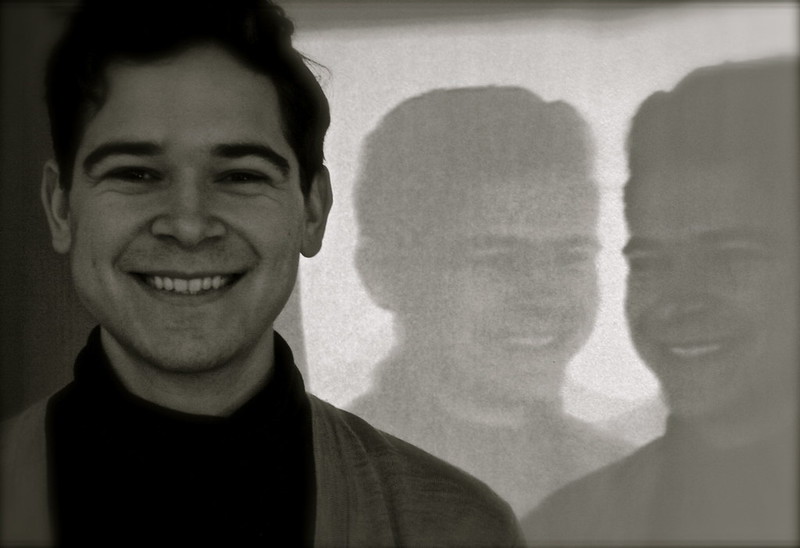Entertainment
Daniel Maslany met with autism specialist to craft ‘Impulse’ character

Maslany plays Townes Linderman, close friend of Maddie Hasson’s lead character Henrietta (Henry) Coles, a high school outcast who discovers she has the ability to teleport and mentally move objects. (File Photo: GlobeTheatre/Flickr, CC BY-NC-ND 2.0)
TORONTO — In crafting his autistic character for the Toronto-shot YouTube Original series “Impulse,” Canadian actor Daniel Maslany consulted an expert and drew on his experiences from when he was younger.
Maslany plays Townes Linderman, close friend of Maddie Hasson’s lead character Henrietta (Henry) Coles, a high school outcast who discovers she has the ability to teleport and mentally move objects.
Maslany, who grew up in Regina and is the brother of “Orphan Black” star Tatiana Maslany, says he met with an autism specialist who works with people of all ages and specifically a lot of teen boys who are on the autism spectrum.
“Really it’s a spectrum, there are so many different ways that it can manifest and show in certain people or not show,” Maslany, who lives in Toronto, said in a recent interview.
“So learning a little bit more about the psychology behind that was really useful.”
Townes is a science and comic-book buff who thrives on routine and becomes Henry’s sidekick as she navigates personal trauma and figures out how to take control of her newfound powers in their Upstate New York town.
He has difficulty dealing with large groups of people, has an online girlfriend and tends to chew on his shirt sleeves — something Maslany said he also did as a kid.
“When I was younger I would chew on my sleeves and I would chew on my shirt collar all of the time, so they would be shredded and soaking wet,” he said.
“It was a nervous tick that I had, so bringing that into Townes grounded me, and that is just one of the ways he deals with anxiety.
”
Maslany also drew on his experiences from high school.
“I was a very earnest sort of ‘Yes, and’ improv theatre kid,” he said, referring to an improvisational comedy game called “Yes, and.”
“In a way, that was my own sort of niche group in high school. Similarly to Townes, I’d say that kept me in my own little bubble that was apart from everyone else and I was a little bit stubborn about, ‘Oh, I’m not like the other teenagers.’ Maddie and I have both talked about how there are elements of ourselves in our characters from high school, like a similar sort of pattern of outsider maybe.”
Based on the novel by Steven Gould, “Impulse” season 1 was originally on the paid subscription service YouTube Red, which is now known as YouTube Premium.
That season is now available for free on the regular ad-supported YouTube stream, as is season 2, which launched Wednesday.
However, season 2 will be released with one episode a week on the free YouTube stream, whereas those who pay for the Premium service will get it all at once and with no ads.
Maslany shot the pilot in 2017, after an acting career that saw him heavily focused on theatre and also starring in the short-lived CBC comedy series “Four in the Morning.” His other credits include “Murdoch Mysteries.”
He found there to be some similarities between “Impulse” and his sister’s former hit clone drama “Orphan Black.” For instance, both have Canadian actor Kristian Bruun in the cast, and both feature a female antihero whose unique qualities land her in dangerous situations.
“I think there is definitely probably a similar sort of audience for both shows, and there’s a respect for different kinds of stories and different characters that is rich in both shows,” said Maslany.
Fans have been waiting a year for season 2, and in that time “Impulse” has continued to grow in popularity, thanks to appearances at events including San Diego Comic-Con.
Maslany said the series subverts the superhero genre and is ground in a dark, real-life-stakes world in which the lead heroine is a victim of sexual assault.
“I think people are responding to the fact that it’s dealt with authentically,” he said.
“So often sexual assault is used as a device to create a character who has a troubled past, but it isn’t the past for this character. Henry continues to live with that and it doesn’t just go away, it doesn’t just make her tough or troubled; it actually lives with her in a real way that I feel like people are responding to, because it’s not a device.”





















